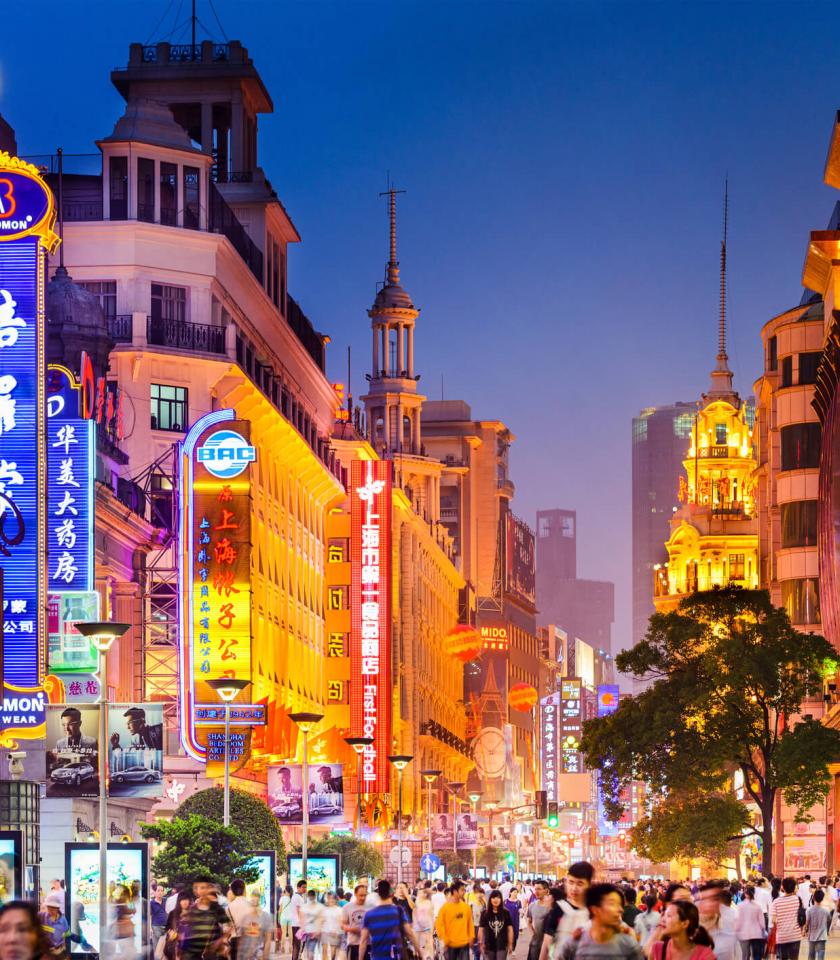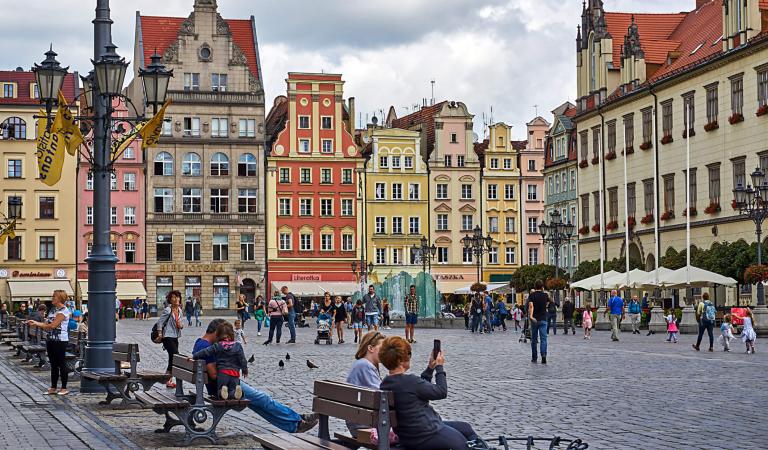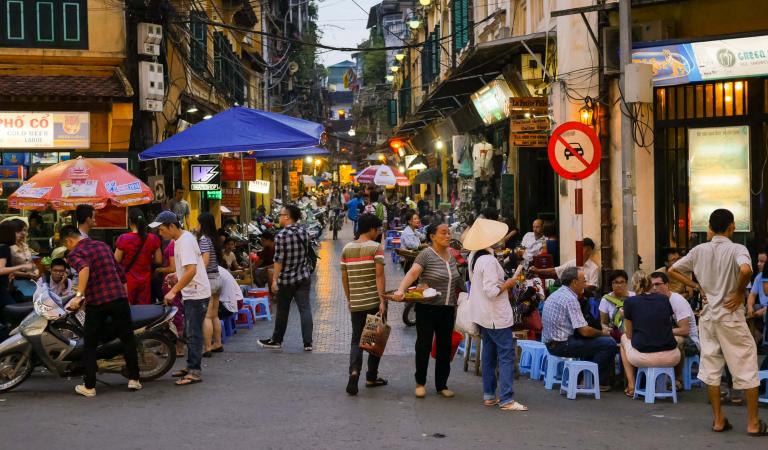The People’s Republic of China is an enormous country, with a land area of approximately 9.6 million square kilometres and an estimated 1.4 billion people. There are 22 provinces, five autonomous regions, four direct-controlled municipalities (Beijing, Shanghai, Tianjin and Chonqqing), and two special administrative regions (Hong Kong and Macau).
Mandarin is the main language, with 301 other living ones, according to Ethnologue: “Of these, 276 are indigenous and 26 are non-indigenous. Furthermore, 15 are institutional, 24 are developing, 93 are vigorous, 139 are in trouble, and 31 are dying.”
With such a huge population that is opening up to the rest of the world, the demand for English is increasing. Some children start learning English as early as kindergarten and many online English tutors teach even these young children. There has also been an explosion in the number of international schools offering an English education.
At university level, a huge number of Chinese students are now continuing their education by attending universities in English-speaking countries, both at undergraduate and postgraduate level. Nearly half a million were registered in 2018-2019 in the United Kingdom and these figures increased by 30% in 2019. Many British universities are represented in China, having agreements with their Chinese counterparts. Students can either complete their degrees there or continue to the UK after they have graduated with a higher national diploma.
In this article, I will share information about living and working in Zhuhai, Beijing, and the north of China, near Dalian and the Russian border. My experiences were different in each city, but I can heartily recommend all of them. Two of the contracts were short-term ones with universities that teach English for Academic Purposes (EAP), before bringing the students to the UK to finish their studies. The third contract was with an international school in Zhuhai, which is affiliated with a sixth-form college in the south of England.
I do not intend to describe working in these institutions but will give more information about how to survive a contract in the country. When I first arrived in Zhuhai, I did not read, write or speak Chinese, and after being picked up at the port that serves high-speed boats from Hong Kong, I was taken to the school and left to my own devices.
- My first memory is going out in the evening to find coffee and food in a very Chinese neighbourhood. I found small shops, but nothing they were selling was recognisable, not even tea or coffee. I ended up buying what I thought was tea, only to find out later it was a drink for young children. Obviously, I should have downloaded some useful apps [link: https://www.sinostep.com/top-20-must-have-apps-for-travellers-and-expats-in-china/] before I arrived. Since Google is blocked there, it is also wise to install a VPN (Virtual Private Network) in your mobile [link: https://www.top10vpn.com/best-vpn-for-china/?bsid=c32abdse1kw114&gclid=Cj0KCQjw84XtBRDWARIsAAU1aM1zN2NozrPY3XwjSZfDuObZt3Cr70kjCDzpUlM2hEKvxiarbjDoOmYaAj9IEALw_wcB], otherwise you will not be able to use Google Translate.
- Zhuhai has high-speed ferries [link: https://www.travelchinaguide.com/cityguides/hongkong/zhuhai-ferry.htm] to and from Hong Kong, and when you arrive in the latter city, you are directed to the pier area where you catch your boat to Zhuhai. You can check your luggage all the way to Zhuhai, so you do not need to find it if you arrive in Hong Kong. Another interesting tip about living in Zhuhai is that you can walk across the Macau border [link: https://wikitravel.org/en/Zhuhai] and experience another semi-autonomous region, that still retains its Portuguese character after it was colonised by Portugal in the 16th century.
- In the far north of China, the city of Dalian [link: https://wikitravel.org/en/Dalian] is interesting and from there it is possible to take a trip to the end of the Great Wall of China [link: https://www.chinahighlights.com/greatwall/section/shanhaiguan-pass.htm]. You can also catch high-speed trains to Beijing and further afield from here. Excellent side trips can be made to Port Arthur [link: https://www.britannica.com/place/Dalian], which was owned by the British, Japanese and Russians in former wars, or to the Panjin Wetlands [link: http://www.china.org.cn/travel/2011-09/02/content_23339611.htm] where the reeds are bright red.
- My last city, Beijing, is immense, with more than 20 million people, spread over a huge area. Despite its size, it is fairly easy to find your way around, using the subway. Signs are written in English and Chinese and the subway maps are very clearly laid out. Visitors can buy a Yīkātōng (一卡通 ) pre-paid card, which has a ¥20 refundable deposit and no expiry date. It is like the Oyster card in London or Opal card in Sydney and can be topped up to use for pay-as-you-go travel.
- Taxis are very cheap and it is possible to book them using Didi [link: https://www.saporedicina.com/english/how-to-use-didi-china/]. You download it, book in English and pay the taxi driver, just like Uber or Lyft. Many taxis will not stop on the streets if you try to hail them, so this app makes transportation much simpler.
- The Chinese use WeChat [link: https://www.wechat.com/en/] or QQ [link: https://www.qq.com/] to send and receive messages rather than emails or Facebook. As for visiting tourist sites, the Beijing Tourist Map [link: https://www.chinahighlights.com/beijing/map.htm] facilitates finding your way around an otherwise very confusing city.
- My absolute favourite places to visit in Beijing were the Forbidden City, Great Wall of China, Botanical Gardens, Fragrant Hills, Summer Palace, Hutongs, Drum Tower, Lama Temple, Beijing Zoo to see the pandas, 798 Art Zone, Marco Polo Bridge, Tiananmen Square and Mao’s Mausoleum. I was there for nearly three months, so was able to get to know the city very well. Baidu [link: https://map.baidu.com/@11590057.96,4489812.75,4z] provides maps of China, if you cannot use Google, and you can pay for most items using WeChat.
Tips for living and working abroad in China
1. If you do go to China, the main tips are to make sure you have the correct work visa [link: https://www.gov.uk/guidance/living-in-china#entry-and-residence-requirements], otherwise you may have to go on visa runs to Hong Kong, Macau or foreign countries, and will run the risk of being imprisoned, fined or deported if you do not have the right one.
2. Make sure you bring enough shoes and clothes if you are above a British size 14 in clothing or wear size 40 shoes or larger! If you would like to master Chinese before you go to China, some universities in the UK have Chinese studies [link: http://bacsuk.org.uk/chinese-in-uk-universities]. Downloading useful APPS and a VPN are also recommended.
3. It is a wonderful country to visit, with interesting sites around every corner. Some of the buildings are astounding, enormous and post-modern, and the Chinese people I met are endlessly patient with their time and happy to help a foreigner.
4. Last but not least, the Chinese students I taught were very hard-working and appreciated everything I tried to do for them. They are the result of China’s continuing economic growth [link: https://www.visualcapitalist.com/china-economic-growth-history/] and if you work with them, you will be playing a small part in developing understanding between the West and the East.






